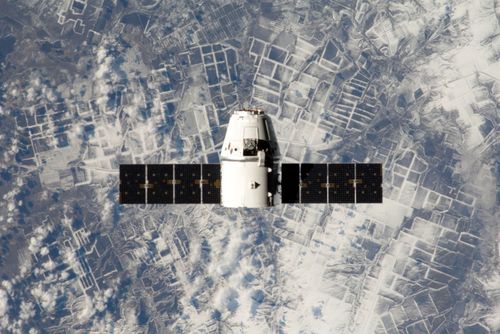Zero Trust for SMEs: Achieving Strong Security with Limited Resources
Zero Trust strengthens SME network security without breaking the bank. Discover practical, cost-effective steps to get started.

Every day, dozens of man-made probes and satellites travelling through space are in constant communication with their mission headquarters on earth.
To facilitate this, the U.S. National Aeronautics and Space Administration (NASA) manages a sophisticated network of high-powered antennae and transmitters around the world.
From strategic location points across the planet, this infrastructure is responsible for monitoring and controlling the general safety and continued well-being of millions of dollars’ worth of spacecraft engaged in valuable scientific research.
Comprising a complex web of highly sensitive electronic communications equipment, NASA’s earthbound space monitoring system – dubbed the Deep Space Network – is well known.
Arguably less well known is the fact that Virtual Private Networks (VPNs) lie at the heart of this web - providing fast, secure and reliable communications for telemetry data passing across the network.
To enable constant communication with space vehicles and to prevent signals being disrupted by the earth’s rotation, NASA’s Deep Space Network spans strategic sites across the United States and around the world including Australia and Spain.
The network is the vital command and control link behind numerous space missions including Juno, New Horizons and the Mars Rover vehicles.
It also transports radar mapping signals used to track asteroids as they pass the vicinity of Earth.
The Deep Space Network is no different to any other computerized network - albeit on a far greater scale.
In common with other communications infrastructure, the data being transmitted contains valuable intellectual property.
Furthermore, much of the information is machine-to-machine which, if hijacked with a malicious payload, has the potential for tremendous damage and embarrassment.
While an attack on NASA’s infrastructure is probably well beyond the scope or expertise of the average cybercriminal, there are one or two nation states in the world that might be willing to find the necessary resources.
A state-backed attack would have much to gain.
Billions of dollars have been invested in space exploration including the development of mould-breaking defense technologies.
With so much at stake, there have been moves over the past 12 months to step up the available levels of protection.
NASA has teamed up with AT&T to secure data communication to and from spacecraft over the network using a VPN. Added data security is not the only benefit. The VPN also speeds up data transmissions by up to three times faster than before.
As a result, deep space communications can now occur at speeds approaching near real-time.
Satellite stations could soon play host to a new era of space-based TV and video content.
Amazon, already a leader in cloud computing, is currently engaged in a battle with Netflix for domination of TV and video on demand services. Both companies have invested heavily in software, hardware and creation of original high-quality video content for streaming over the internet. Netflix currently has the edge. Its on demand TV shows and movies presently account for 35 percent of North American internet traffic during primetime hours. In response, Amazon is exploring ways of expanding its own content.
In Spring 2017, an Amazon subsidiary that encodes video and helps power the Amazon Web Services (AWS) cloud platform collaborated with NASA to conduct the first live broadcast from the International Space Station (ISS).
A panel of virtual reality specialists, Hollywood executives and computer experts took part in a debate exploring how advanced imaging and cloud technologies might break new ground in scientific research and filmmaking.
If space-based program making takes off, we can expect VPNs to again be pivotal in protecting the privacy and exclusivity of access to such valuable video data.
In summary, space programs are an important test bed for a great many scientific and technological advances. Data communications between earth and spacecraft contain some of the most sensitive and valuable M2M information known to mankind.
For the nations and organizations that sponsor them, preserving their secrets is vital. It’s only natural they should trust VPN technology to keep it that way. In other words, to paraphrase a famous line, in space no one can see you stream.